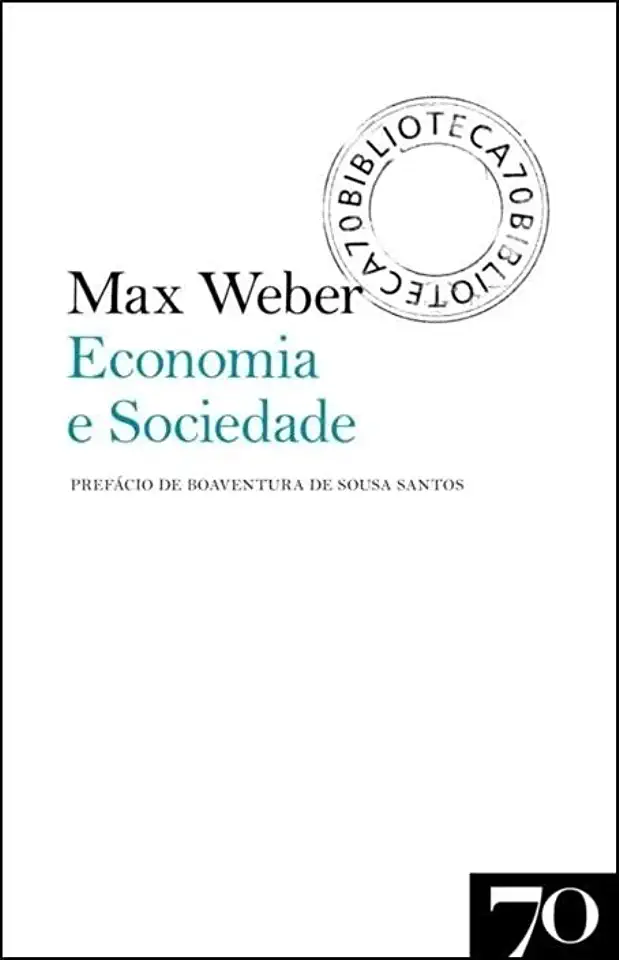
Economy and Society - Max Weber
Economy and Society: Max Weber
Introduction
In his seminal work, Economy and Society, Max Weber presents a comprehensive analysis of the relationship between economic and social institutions. Weber argues that the economy is not a separate sphere of human activity, but rather is embedded in and shaped by social structures and cultural values. He also emphasizes the importance of understanding the role of power and domination in economic life.
Key Concepts
Weber's analysis of the economy and society is based on a number of key concepts, including:
- Social action: Weber defines social action as any human behavior that is oriented towards others. This includes not only economic activities, but also political, religious, and cultural activities.
- Social structure: Weber argues that social structures are the relatively stable patterns of social interaction that shape human behavior. These structures include institutions, such as the family, the state, and the market, as well as cultural values and norms.
- Power: Weber defines power as the ability to get others to do what one wants, even if they are reluctant to do so. Power can be based on a variety of factors, including economic resources, political authority, and social status.
- Domination: Weber argues that domination is a form of power that is based on the ability to impose one's will on others. Domination can be legitimate, such as the authority of a parent over a child, or it can be illegitimate, such as the power of a dictator over a subject.
The Relationship Between Economy and Society
Weber argues that the economy is not a separate sphere of human activity, but rather is embedded in and shaped by social structures and cultural values. He identifies a number of ways in which the economy is influenced by social factors, including:
- The division of labor: The division of labor is the way in which economic tasks are allocated among different individuals and groups. Weber argues that the division of labor is shaped by social factors, such as the family, the state, and the market.
- The distribution of resources: The distribution of resources is the way in which economic resources are allocated among different individuals and groups. Weber argues that the distribution of resources is shaped by social factors, such as power and domination.
- The organization of production: The organization of production is the way in which economic goods and services are produced. Weber argues that the organization of production is shaped by social factors, such as technology, culture, and the state.
The Role of Power and Domination in Economic Life
Weber emphasizes the importance of understanding the role of power and domination in economic life. He argues that power and domination are not simply economic phenomena, but rather are social and political phenomena that have a profound impact on the economy. Weber identifies a number of ways in which power and domination can influence economic life, including:
- The control of resources: Power and domination can be used to control access to economic resources, such as land, labor, and capital. This can give those who control resources a significant advantage in economic competition.
- The exploitation of labor: Power and domination can be used to exploit labor, by forcing workers to work long hours for low wages. This can lead to poverty and social unrest.
- The creation of monopolies: Power and domination can be used to create monopolies, which can give a single company or group of companies control over a particular market. This can lead to higher prices and reduced competition.
Conclusion
In Economy and Society, Max Weber presents a comprehensive analysis of the relationship between economic and social institutions. He argues that the economy is not a separate sphere of human activity, but rather is embedded in and shaped by social structures and cultural values. He also emphasizes the importance of understanding the role of power and domination in economic life. Weber's work is a classic of social theory and has had a profound impact on the study of economics and society.
Why You Should Read Economy and Society
Economy and Society is a must-read for anyone interested in understanding the relationship between economic and social institutions. Weber's analysis is insightful and provocative, and his work has had a profound impact on the study of economics and society. If you are interested in learning more about how the economy works, and how it is shaped by social factors, then I highly recommend reading Economy and Society.
Here are a few reasons why you should read Economy and Society:
- It is a classic of social theory.
- It provides a comprehensive analysis of the relationship between economic and social institutions.
- It is insightful and provocative.
- It has had a profound impact on the study of economics and society.
If you are interested in learning more about the economy and society, then I highly recommend reading Economy and Society.
Enjoyed the summary? Discover all the details and take your reading to the next level — [click here to view the book on Amazon!]